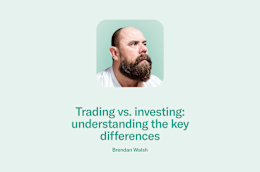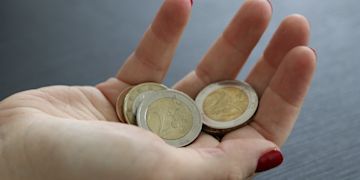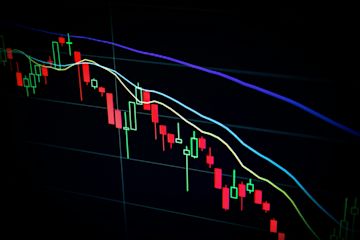
Trading vs. investing: understanding the key differences
Trading and investing — what’s the difference? And what might be best for you? Brendan Walsh, a veteran investor, digs into the details and gives his expert opinion.
6 min read
I started my career in 2006 as a “quant,” or quantitative analyst, focusing on measuring and offsetting risk. I moved on to become a portfolio manager, taking risks instead of assessing them. However, risk is still my starting point in investing. It explains why we can expect a reward, but it comes in many shapes and sizes. This piece is about the difference between trading and investing, what the risks are, how they are rewarded, and what you need to know before you get involved.Search for "What's the difference between trading and investing?" and find some common themes and explanations: Trading is short-term/investing is long-term, Trading is risky/investing is safe, and so on… Which is better, trading or investing? Is investing better than day trading?To answer that question, you must understand the difference between trading and investing.If trading or investing was a diet or an exercise routine, which should you pick, given your objectives? Do you want to improve your marathon time, increase your bench press in the gym, or just fit into those clothes you bought in the sale? What is trading, and what is investing? When you invest or buy a share, what you get in return is a dividend and, hopefully, a profit if the share price increases. Think of this as lending your money out; you get paid a regular amount, just like interest in a bank account. However, unlike a bank account, you could get more than you lent if the company does well. Equally, you might get back nothing if it fails.You are taking a risk, so you should expect a reward. We call that a risk premium; you aim to harvest a risk premium as an investor. If you give your investment enough time, it should grow slowly but surely. Most investors will group their investments in a portfolio of stocks and possibly other assets, either directly or through an exchange-traded fund (ETF). The latter is often much cheaper and more flexible. Trading is you versus the market, anticipating something that may happen, placing a bet, and then profiting when it does. The analogy with gambling is intentional. One of the most famous traders, Ed Thorp, started his journey at the blackjack table. His evolution from blackjack to trading is no coincidence. This is a game where, if you have the memory and a mind for numbers, you can calculate the exact chances of drawing an ace of spades or the nine of clubs based on what cards have already been dealt.Just like when you trade on the financial markets, you make predictions about the future based on what has happened in the past. The difference is that trading is much more complicated than blackjack; there are no certainties, the number of cards is infinite, and in theory, the ones drawn tell you nothing about what comes next.Despite this, people succeed at many different types of trading; some even make a living out of it. Why is that? Sometimes, the cards can speak to you, and markets are not perfect. In short, they are inefficient, and that presents an opportunity.When you trade, you are betting that the current market price is wrong. In theory, markets can never be wrong because so many people buy and sell the same thing; the price must be fair, right? Wrong! Just like the rest of us, markets are only efficient sometimes. The efficient market hypothesis (EMH) argues that you can't beat the market and shouldn't even try. But I and many others beg to differ. Here’s the skinny: There are buyers and sellers in the market who don't care about price. They trade because they need to reduce risk, or as a country, they want to increase or decrease the value of their currency or interest rates. Motivation isn't important; price is secondary. This can cause glitches in the matrix. If you can identify these instances when they occur, you suddenly improve your chances of predicting what comes next; we call that "edge."Every trader needs an edge, an insight for predicting what central bankers will do — a talent for analyzing patterns in data. Whatever your edge is, to be successful, you need to identify it. As an investor, you don’t need an edge, you just need time; that’s another difference in time horizon and leverage. Trading is typically focused on anything from milliseconds (so-called high-frequency trading, or HFT) to weeks or months, while investing, by contrast, can take years. In trading, money is often made by exploiting small inefficiencies and using leverage to amplify profits. In contrast, investing typically only employs leverage to a considerable extent. But what is leverage, and why does it matter?Trading can seem more accessible than investing. You don't need to understand anything about economics, and you don't need a big deposit to make a lot of money because the broker will lend you money to trade. You put in $100, and they will lend you $400, so you can deal with $500. That, in a nutshell, is leverage with a ratio of 5:1. So, you can make 5x more now if you are right. It sounds great but swings both ways: more significant gains but more considerable losses, too — and trading is hard, really hard.The best traders are right five times out of 10, or six times if they are excellent. That means a lot of the time, they are wrong. Success in trading is not always being right; it's about not going broke when you are wrong. Taking on too much leverage is one of the fastest ways to go broke. With 10:1 leverage, a 10% move will wipe you out. Let that sink in.If you develop an edge, leverage can turn that into a profitable strategy. Still, you must avoid the risk of ruin. To do that, you must understand risk, build a process, and stick to it. That’s all achievable and can be successful, but it takes work and time. For many, investing will have a much higher probability of success over time than trading.There is nothing wrong with getting a kick out of the markets. But if you are inclined to trade just for the thrill of the chase, to "overtrade" or "trade to lose," then you either need a rigorous process or should stick to investing.So, what is the difference between investing and trading? Maybe there isn’t one; one person's trade is another's investment. It all comes down to how you view the market and whether you feel you have an edge to exploit or just want to be paid a fair price for your risk. Remember, your money might be relatively safer in a bank account, but investing in the stock market might preserve the value of that money over the long term. Alternatively, if you develop an edge, you can earn an extra return trading. There are no certainties in the market or in life. Everything is a risk trade-off. Trading vs. investing, choose your risk, take your pick, and enjoy the ride.
Day trading vs. investing: what’s the difference?
The fundamentals of trading and investing
Risks and rewards in trading and investing
Investing vs. trading: The realities of the market
Market efficiency: myth vs. reality
Trading: What’s your edge?
Trading and investing in practice
Leverage: a double-edged sword
Choosing your risk
Disclaimer
These statements do not constitute investment advice relating to any financial instrument. Financial instruments can be subject to high fluctuations in value. A decline in value or a complete loss of the money invested is possible at any time.
Find similar stories
BY BRENDAN WALSH PHDBrendan Walsh PhD, PRM. Portfolio manager, writer, and investor.
Related Post
These might also interest youINVESTMarket correction, explained: What it is and what triggers itA decline in prices isn’t necessarily a sign of a full-blown market crisis. Learn what a market correction is, what causes it, and how to spot the difference between a correction and a crash.
6 min read
INVESTWhat is earnings per share? How to calculate EPSGet familiar with the basics of earnings per share (EPS) and what this profitability metric means for investors.
5 min read
INVESTWhat is dividend investing? Here’s what you need to knowDividends are a piece of a company’s profit, and some investors focus their portfolios around dividend-paying stocks. Learn about dividend investing, from key metrics to risk management.
5 min read


